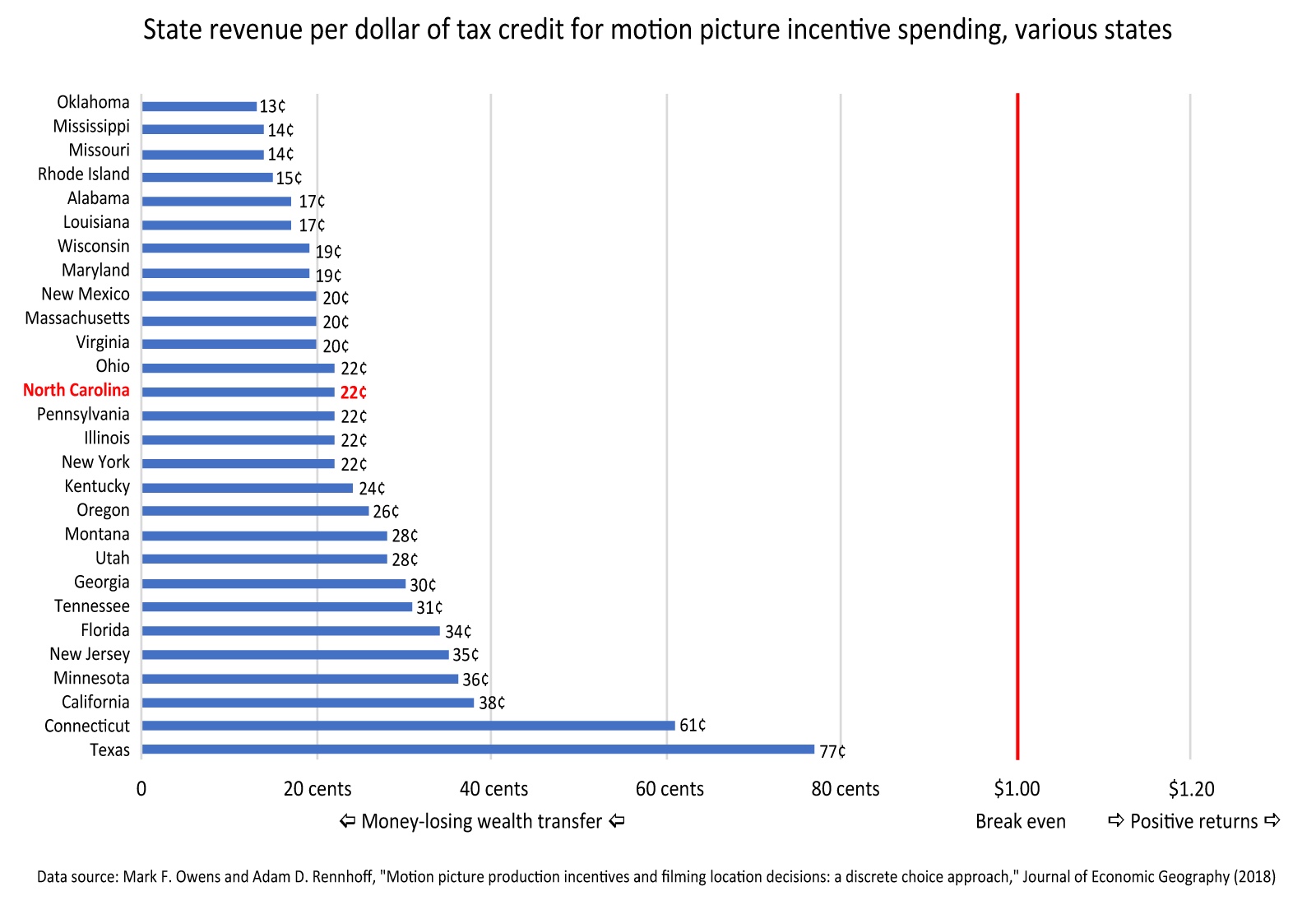This week, JLF’s Jon Sander’s published a research brief on film incentives prompted by a statement Gov. Roy Cooper released this week:
[H]is press release announc[ed] the creation of a “Governor’s Advisory Council on Film, Television and Digital Streaming.” This group will “advise Gov. Cooper on efforts to grow and develop North Carolina’s film industry and support the work of the State Film Office.”
It’s a reasonable expectation that this elevated Special Interest Pleading Council will push first for returning the film grants program to the (likely unconstitutional) refundable tax credits for film productions.
Sanders remarked that the governor’s administration has been overlooking numerous studies which establish a negative fiscal return for film subsidies:
Peer-reviewed academic literature on film incentives has been highly dubious of those programs as ways to grow a state’s economy. So have state governments’ reviews of their own film incentives; see the list here (all finding returns of mere pennies per dollar).
Most recently, a 2019 study from Western Carolina University’s Center for the Study of Free Enterprise examined “What Do Film Incentives Mean for North Carolina’s Economy?” The study by John Charles Bradbury, a professor of economics at Kennesaw State University and a faculty affiliate with the Bagwell Center for the Study of Markets and Economic Opportunity, found that:
“North Carolina’s film incentives, which have cost the state over $400 million, do not appear to have delivered the promised economic boost. For this reason, policymakers may wish to reconsider the state’s commitment to the incentives.”
Sanders explains this is not unique to North Carolina either. Sanders writes:
A 2017 study published by the Journal of Economic Geography by economists Mark F. Owens of Penn State University and Adam D. Rennhoff of Middle Tennessee State University looked at the impact of tax incentives on filming location decisions. They estimated the return on investment for North Carolina’s program at 22 cents per dollar.
…They found that “movie incentive programs are revenue-negative for states.” I created this chart from their findings:

Sanders writes:
Research finds that film incentives also only benefit outside film production companies but create a political economy based on rent-seeking. Recipients are gaining notoriety for threatening to refuse incentives as a way to [push for] their preferred social policy choices.
How could a governor’s advisory council on film incentives actually serve the public interest? By reminding the governor that these programs don’t work and do more harm than good.
Read the full piece here. Learn more about film incentives here.


